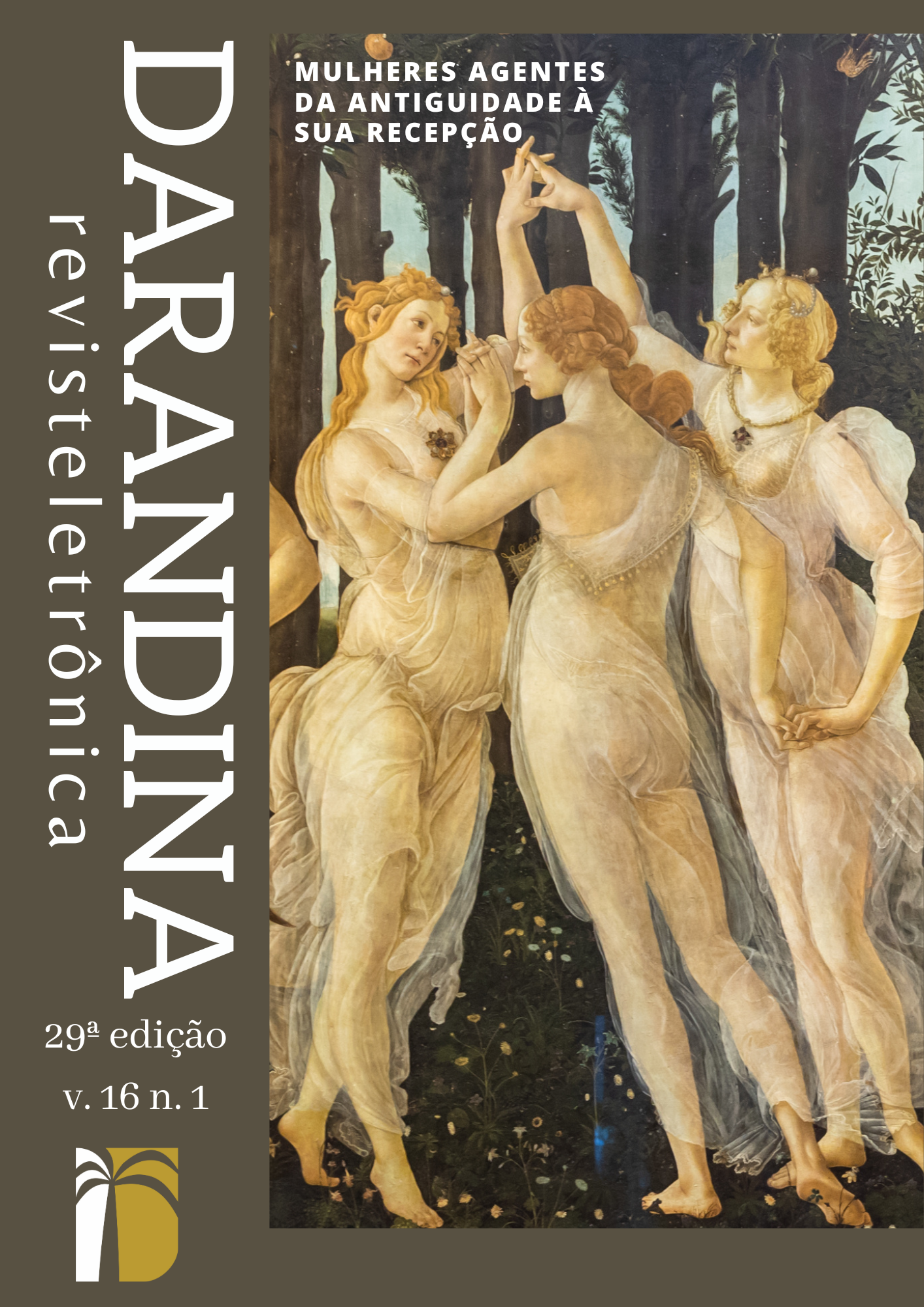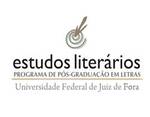AS DUAS IRMÃS DE PÉRSEFONE
A RECEPÇÃO DE SYLVIA PLATH
DOI:
https://doi.org/10.34019/1983-8379.2023.v16.40827Palavras-chave:
Sylvia Plath, recepção, Perséfone, poesiaResumo
O presente artigo tem como objetivo discutir o poema “As Duas Irmãs de Perséfone”, da autora estadunidense Sylvia Plath. Buscarei identificar qual sua recepção do mito de Perséfone e as possíveis referências utilizadas pela poeta, bem como os aspectos que enquadram o poema no conceito de “Abjeção”, da filósofa francesa Julia Kristeva. O uso de temas e elementos clássicos foi recorrente na obra de Plath, embora essa faceta de seu trabalho tenha sido ofuscada por análises que favorecem os aspectos autobiográficos de sua escrita. Leituras atuais, como a de Holly Ranger, privilegiam a associação de Plath aos movimentos literários da poesia Confessional e do Revisionismo Mítico, iniciados na década de 1960. No Revisionismo Mítico diversas autoras, como Anne Sexton e Margareth Atwood, reivindicavam o uso dos clássicos, um terreno intelectual até então predominantemente masculino. No poema “As Duas Irmãs de Perséfone” (1956), Plath demonstra grande conhecimento das fontes primárias clássicas, como Virgílio e Ovídio. Ainda assim, explorando a dualidade da deusa, a autora ativamente busca modificar a personagem de Perséfone de modo a ilustrar um anseio de seu e contexto cultural da segunda onda do feminismo: a aparente incompatibilidade entre os papéis de mãe/esposa e o de profissional e intelectual.
Downloads
Referências
ANNAS, Pamela J. The self in the world: The social context of Sylvia Plath's late poems. Women's Studies: An Interdisciplinary Journal, v. 7, n. 1-2, p. 171-183, 1980.
FOLEY, Helene P. et al. (Ed.). The Homeric Hymn to Demeter: Translation, commentary, and interpretive essays. Princeton: Princeton University, 1994.
GILL, Jo. The Cambridge Introduction to Sylvia Plath. Cambridge: Cambridge University, 2008.
HOMERO. Ilíada. Traducción, prólogo y notas de Emilio Crespo Güemes. Madrid: Gredos, 1996.
HOMERO. Odisea. Edicion y traducción de José Luis Calvo. Madrid: Cátedra, 2000.
HOUSE, Veronica. Medea's Chorus: Myth and Women's Poetry Since 1950. Bristol: Peter Lang, 2014.
KRISTEVA, Julia. Powers of horror. California, Columbia and Princeton: California, Columbia and Princeton University, 1982.
KUKIL, Karen. The unabridged journals of Sylvia Plath. New York: Anchor, 2000.
MALCOLM, Janet. A mulher calada: Sylvia Plath, Ted Hugues e os limites da biografia. São Paulo: Companhia das Letras, 2014.
OSTRIKER, Alicia. Stealing the Language the Emergence of Women's Poetry in America. 1986.
OVIDIO. Fastos. Edición y traducción de Manuel Antonio Marcos Casquero. León: Universidad de León, 1990.
OVIDIO. Metamorfosis. Edición y traducción de Consuelo Álvarez & Rosa María Iglesias. Madrid: Cátedra, 2003.
RANGER, Holly. Sylvia Plath and the classics in HELLE, Anita; GOLDEN, Amanda; O'BRIEN, Maeve (Ed.). The Bloomsbury Handbook to Sylvia Plath. London: Bloomsbury, 2022.
SALCEDO GONZÁLEZ, Cristina et al. Perséfone renacida. El mito de Perséfone en la literatura juvenil anglosajona del siglo XXI. Un estudio desde la Mitocrítica y la Recepción Clásica. 2022.
PLATH, Sylvia. Collected poems. London: Faber & Faber, 1981.
PLATH, Sylvia; KUKIL, Karen V.; NOGUEIRA, Celso. Os diários de Sylvia Plath, 1950-1962. Porto Alegre: Globo, 2003.
PLATH, Sylvia; Ariel. Tradução de Maria Fernanda Borges. Lisboa: Relógio D'Água, 1996.
VIRGILIO. Geórgicas. Introducción general de José Luis Vidal, traducción, introducción y notas de Tomás de la Ascensión Recio García & Arturo Soler Ruiz. Madrid: Gredos, 1990.
VIRGILIO. Eneida. Introducción de Vicente Cristóbal, traducción y notas de Javier de Echave-Sustaeta. Madrid: Gredos, 1992.
Downloads
Publicado
Como Citar
Edição
Seção
Licença
Copyright (c) 2023 Sarah Tolfo

Este trabalho está licenciado sob uma licença Creative Commons Attribution 4.0 International License.

Este trabalho está licenciado sob uma licença Creative Commons Attribution 4.0 International License.
Direitos Autorais
Autores que publicam nesta revista concordam com os seguintes termos:
1. Autoras e autores mantêm os direitos autorais e concedem à revista o direito de primeira publicação, sendo esta licenciada sob a Creative Commons Attribution License 4.0 Internacional.
2. Autoras e autores têm permissão e são estimuladas(os) a publicar e compartilhar o trabalho com reconhecimento da publicação inicial nesta revista.
3. Autoras e autores dos trabalhos aprovados autorizam a revista a ceder o conteúdo de seus trabalhos, após sua publicação, para reprodução em indexadores de conteúdo, bibliotecas virtuais e similares.
Para mais informações sobre a Creative Commons Attribution 4.0 International License, acessar: https://creativecommons.org/licenses/by/4.0/



















